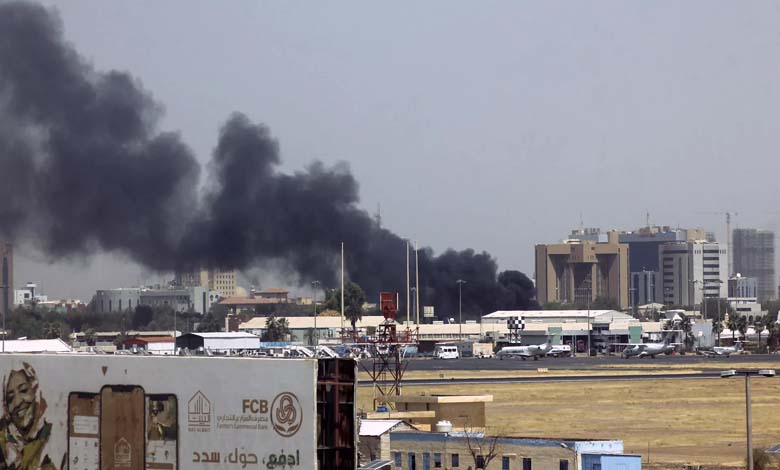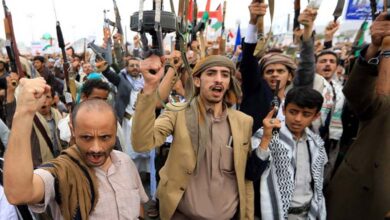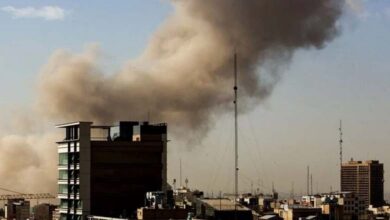Targeted Strikes in Port Sudan Reveal Tactical Shift by Rapid Support Forces

The intensive use of drones by the Rapid Support Forces (RSF) to target sensitive military and civilian facilities in Port Sudan, including the airport, sends a clear message: they retain the ability to strike deep within army-controlled areas.
For the third consecutive day, drone strikes have targeted Port Sudan — the main stronghold of Sudan’s interim government and headquarters of the military leadership. In a dangerous escalation, military and security sources confirmed that Tuesday morning’s attacks struck the city’s civilian airport and a key military base, signaling the RSF’s capacity to threaten strategic locations far from traditional front lines. These developments reflect new military tactics increasingly reliant on drones.
-
Precision Strikes Expose Shadow Alliances: Foreign Experts Killed and Islamists Unveiled in Port Sudan
-
Strategic Strike in Port Sudan Reveals Foreign Involvement, Iranian Arms, and Complicity of the Islamic Movement
These attacks follow a shift in RSF strategy, led by General Mohamed Hamdan Dagalo, known as “Hemedti,” as the group adapts to battlefield losses — notably after losing control over most of the capital, Khartoum, and surrounding areas. Targeting Port Sudan — where the interim government, UN agencies, and hundreds of thousands of displaced people have taken refuge — is a political and military statement that the RSF can still carry out impactful, high-level operations even within core army territory.
The use of drones, which have become a key weapon for Hemedti’s forces, reflects a shift toward a protracted war of attrition, based on precise and sudden strikes, without the need for territorial control.
-
Mysterious Airstrike in Port Sudan Reveals Involvement of Foreign Experts and Iranian Arms… Silence from al-Burhan and the Islamic Movement Raises Questions
-
Port Sudan no longer secure for Al-Burhan
According to officials at Port Sudan airport, one drone targeted the civilian section of the facility, causing panic among residents. A military source confirmed that another strike hit the city’s main military base. Eyewitnesses also reported a drone crashing near a hotel close to the residence of Sovereign Council leader Abdel Fattah al-Burhan.
Strong explosions rocked the city early Tuesday, with plumes of smoke rising from the port and fuel depots in the southern sector, which had been set ablaze during similar attacks on Monday night.
-
Rapid Support Forces Expose the Muslim Brotherhood and Army Schemes in the Gezira State
-
“Rapid Support Forces” Welcome Washington’s Call for Sudanese Talks in Switzerland and Confirm Their Participation
A security source confirmed that a depot near the southern part of the port was also struck, reinforcing the likelihood of coordinated attacks designed to disrupt the city’s infrastructure and destabilize its previously relative calm.
The RSF recently lost several strategic positions — notably in Khartoum and Omdurman — after controlling large areas during the war’s early weeks. In response, the paramilitary group has shifted to shadow warfare, leveraging a new arsenal of drones, reportedly acquired recently with possible foreign assistance.
-
The Popular Movement Insists on Including Rapid Support Forces in Negotiations with the Government
-
UN Concerns Grow Over Escalating Fighting in El Fasher Between Army and Rapid Support Forces
After withdrawing from key areas in Khartoum, Hemedti vowed a “harsh and painful” response — a threat seemingly fulfilled now with the targeting of Port Sudan, which had long remained outside the war’s reach.
The use of drones — an unconventional weapon in the Sudanese context — marks a new phase of the war, in which geographic distance is no longer a barrier to launching precision strikes. Analysts believe this shift could force the army to reassess the deployment and positioning of its forces.
-
The crisis worsens in Sudan… 8 Months of fighting between the Army and Rapid Support Forces, What’s next?
-
Rapid Support Forces enter wad madani in a victory tightening the noose on evidence
Meanwhile, al-Burhan, the army chief and head of the Sovereign Council, appears committed to pursuing military victory despite changing ground realities. Yet the recent developments suggest this outcome is becoming increasingly unlikely as the RSF continues to carry out disruptive surprise attacks.
Al-Burhan is facing mounting domestic and international pressure to pursue a political settlement, as global humanitarian organizations unanimously describe the Sudanese war as “senseless,” given the rising civilian toll and lack of a viable military endgame.
-
Deaths in renewed clashes in Sudan… Rapid Support Forces shoot down army aircraft
-
Sudanese army resorts to drones to halt Rapid Support Forces’ advance
Now in its second year, the Sudanese conflict is driving the country toward an unprecedented humanitarian disaster. According to UN estimates, the war has killed tens of thousands and displaced over 13 million people both internally and externally. Vast regions — especially Darfur and West Kordofan — are experiencing alarming levels of food insecurity, with agriculture halted and humanitarian aid suspended.
Amid the interim government’s inability to manage the situation and weak field control, civilians continue to bear the brunt of a power struggle between generals, with no clear path out of the crisis.
-
Sudanese Support Forces Control Um Ruwaba as Fighting Intensifies in Khartoum
-
Rapid Support Forces tighten the noose around Sudanese Army headquarters











